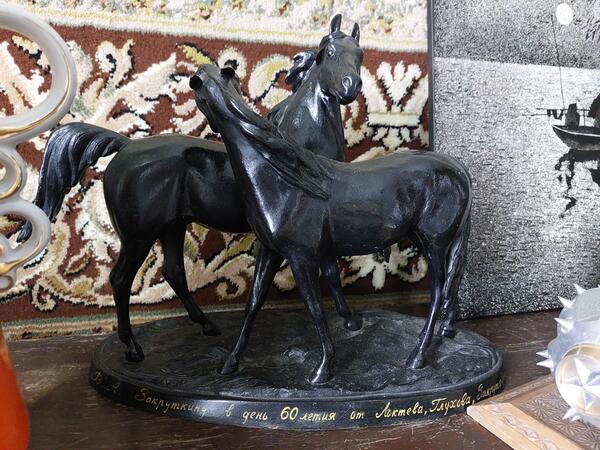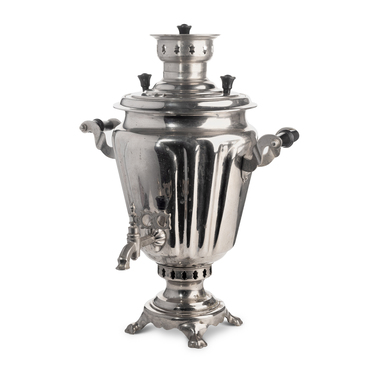The sculpture composition “Horses” was presented to Vitaly Aleksandrovich Zakrutkin on his 60th birthday by his close friends. The base of the sculpture features a golden inscription, “To V.A. Zakrutkin on his 60th birthday from friends Loktev, Glukhov, and his brother.“
The sculpture composition of two black horses exemplifies the renowned artistic casting of the Ural region. These castings undergo subsequent mechanical processing, while fine details are finished by hand.
The largest collection of Ural (or Kasli) casting products is housed in the Yekaterinburg Museum of Fine Arts. The pavilion dedicated to artistic cast iron products is listed in the UNESCO catalog as a significant phenomenon of industrial art.
Currently, sculptures and handicrafts from the Ural factories of the Soviet period are highly valued for their exceptional craftsmanship and meticulous detailing. One notable example is the sculpture of horses, which is housed in the memorial museum of the writer Vitaly Zakrutkin. This piece conveys a sense of dynamism and liveliness, adding an impression of lightness and mobility to the seemingly heavy cast iron material.
There was a reason behind this gift: the writer’s relatives and friends were well aware of his deep appreciation for nature and his love for trees, flowers, dogs, cats, and especially horses. Since childhood, Vitaly Zakrutkin believed that a horse is a person’s most loyal and faithful companion, both in work and on the battlefield. Horses were portrayed as heroes in Zakrutkin’s works alongside people. In his essays, stories, and the novel “Creation of the World, ” one can sense the writer’s passionate love for these animals.
In his book “Notes of the Caucasus”, the writer and front-line soldier recounts the difficult fate of horses during war. The cavalry corps, particularly the 5th Don Cavalry Cossack Corps, distinguished themselves brilliantly in battle and, in May 1945, solemnly marched through the streets of Vienna, Prague, and Berlin. This achievement was reflected in literature and music, as captured in the famous lines, “The Cossacks, Cossacks, Our Cossacks are riding around Berlin!”


